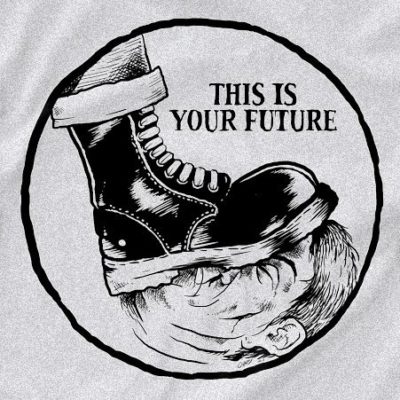THIS IS AN ATTEMPT to assemble the pieces in the Trump/Russia jigsaw puzzle, to reveal the Big Picture.
My conclusions were heavily influenced by Louise Mensch‘s eye-opening January 17 essay, “Dear Mr. Putin, Let’s Play Chess.” Other sources include Seth Abramson’s “The Domestic Conspiracy That Gave Trump the Election is in Plain Sight,” which ran on the Huffington Post on the same day, and “A Brief History of the First Russo-American Cyber War,” by War Is Boring’s Bryan E. Frydenborg. The Steele dossier, the “Golden Shower” series of intelligence reports written by Christopher Steele in 2016 and subsequently released by Buzzfeed, was also a useful resource. I have exhaustively fact-checked assertions, linking to a wide range of news sources from across the political spectrum, from the Washington Post to Reuters to Breitbart.
The dramatis personae—the pile of puzzle pieces, if you will—is generally well known to most observers: Donald Trump, Vladimir Putin, Edward Snowden, Julian Assange, James Comey, Rudy Giuliani, Anthony Weiner, Huma Abedin, Hillary Clinton, Barack Obama, Blackwater founder Erik Prince, Trump attorney Michael Cohen, “ratfucker” Roger Stone, Paul Manafort, Russian moles in the NSA and the FBI’s New York field office, and an obscure Russian hacker named Yvegeny Nikulin.
This is how the pieces fit together. This is how they connect. This is what it means.
Our story begins in Hawaii, of all places—the state where, contrary to Donald Trump’s racist claims to the contrary, Barack Obama was born…
~
Chapter 1: Edward Snowden’s Great Escape, or, Isn’t it Fishy That He Wound Up in Russia?
In 2011, Edward Snowden, who’d resigned from the Central Intelligence Agency two years earlier, began working on Dell Computer’s CIA account, where he liaised closely with chiefs of the Agency’s technical branches. Exactly when Snowden was recruited by one of the Russian moles at the National Security Agency is unclear, but by April of 2012, he was already illegally downloading classified files. The following year, he took a job with the government contractor Booz Allen, with the explicit goal of obtaining top-secret documents from NSA’s facility in Hawaii.[2. My timeline is from Wikipedia, here.]
While Snowden was busy committing acts of espionage—we can call him a whistleblower if we like, but what he did is, strictly speaking, espionage—Julian Assange, of Wikileaks fame, was interviewing the president of Ecuador, Rafael Correa, for RT, the Russian-state-owned channel. (Even then, Assange was cozy with Putin). Assange and Correa apparently hit it off, so much so that when the former applied to Ecuador for political asylum a month later, the request was granted. Assange took to the Ecuadorian embassy in London on June 19, 2012, and has lived there ever since.
On April 4, 2013, a month after Snowden began his job at Booz Allen, Colonel Alexander Kazalupov, the Cuba bureau chief of the FSB (Russian intelligence), flew to Quito to meet with agents of SENAIN, the Ecuadorian intelligence agency. While there is no transcript of the proceedings, the purpose of the meeting was clearly to discuss Snowden. [1. “A copy of a letter confirming this meeting, written by the Russian Ambassador to Ecuador, is held at the Ecuadorean Embassy in London, where Julian Assange has asylum, in SENAIN files relating to Assange and to Wikileaks,” per HeatSt.] The very next day, Snowden wrote his lone email to the legal team at the NSA, asking about Executive Orders. It was during the month of April, by Snowden’s own admission, that he purloined the tranche of highly classified documents that would make up the bulk of what would later be released.
What this suggests is that the Russians (and the Cubans and the Ecuadorians) knew about the Snowden NSA operation in advance.
On May 20, 2013, Snowden took a leave of absence from Booz Allen, ostensibly to return to the continental U.S. for medical reasons. Instead, he flew to Hong Kong, where a bizarre sequence of events led him to Moscow.
Maybe, in retrospect, they weren’t so bizarre.
The Guardian and the Washington Post began publishing the stolen classified documents on June 4, 2013. [1.CORRECTION: An earlier version of the story erroneously stated that Wikileaks published the Snowden emails.]On June 21, the United States formally charged Snowden with espionage; the next day, the U.S. revoked his passport. Julian Assange, through his buddy President Correa, was able to provide Snowden with Ecuadorean travel papers. Snowden flew to Moscow, where he was to take an Aeroflot flight to Cuba—FSB station headquarters of the aforementioned Col. Kazalupov, who probably knew about the NSA leak before Snowden did—and from there proceed to Ecuador, which would grant him asylum. Under pressure from the American government, however, both Cuba and Ecuador decided against granting Snowden’s asylum request, and he has remained in Russia since then.
(Among other things, Snowden’s “Great Escape” establishes, early on, collusion between Julian Assange of Wikileaks and Vladimir Putin of Russia.)
Snowden continues to insist that his desire was to live in Latin America; the U.S. government, he says, has “trapped” him in Russia. Given that his extradition to the U.S. would be much easier in Ecuador or Bolivia, where CIA presence is strong, it’s more likely that the government that wants to keep him in Russia is not America’s, but Putin’s. After all, Putin can point to Snowden’s presence in Russia as a symbol of his desire for freedom and transparency. The American asylum-seeker, like Donald Trump, is a useful Russian prop.
Now, it may well be that Snowden released the documents to shine a light on the illegal activities of the NSA, although his claims of repeatedly bringing up the issue to his superiors at the NSA have not been corroborated. It may well be that the Russian mole who recruited him presented himself as a patriot. It may well be that Snowden acted on noble impulses, as he’s claimed; certainly he has kept up the charade long enough to dispel doubts about his motives. It may even be that Russia did not insist, on a condition of his asylum, that they receive all of the classified documents.
But it wasn’t just the NSA’s documents that Russia was after.
It was how to weaponize NSA’s tech.
~
Chapter 2: Enter Yvegeny Nikulin, Russian Hacker Exraordinaire
Not long after Snowden’s arrival in Moscow, Russian hackers began using NSA hacking techniques to wage cyber war. A shadowy figure going by the handle Guccifer 2.0—a nod to legendary Romanian hacker Marcel Lazăr Lehel, the original Guccifer—claimed responsibility for the most notorious of these hacks, including that of the DNC.
Security experts have concluded that Guccifer 2.0 is not an individual but rather a persona cultivated by Russian intelligence—rather like George Kaplan in North by Northwest. But there are real, flesh-and-blood Russian hackers. One of them is named Yvegeny Nikulin. In 2013, armed with NSA techniques possibly provided to Russia by Edward Snowden, the 26-year-old Nikulin hacked into LinkedIn, Dropbox, and, most significantly for our purposes, the now-defunct anonymous Q&A app called Formspring.
Launched in 2009, Formspring was shut down in 2013 after numerous controversies involving cyberbullying. Formspring was also—and this is important—the app that disgraced former Congressman Anthony Weiner used to transmit pictures of his junk. Weiner, of course, is the estranged husband of Huma Abedin, who has for many years been the Smithers to Hillary Clinton’s Monty Burns. Compromise Weiner, and Abedin could also be compromised; this, in turn, might damage Clinton.
Using stolen credentials from Weiner’s compromised Formspring account, Nikulin planted a virus on Weiner’s laptop, which would allow him to “wake it up” at some future date. And the laptop sat dormant for years, waiting to be summoned to active duty in the service of the Kremlin.[3. Note: this is Mensch’s speculation, not mine, and is not verifiable, although it certainly makes perfect sense.]
Summoned to be used as a weapon.
The day arrived in early October, 2016. Nikulin “awakened” the Weiner laptop, using his remote access to upload hundreds of thousands of emails to it. On October 3, the New York Police Dept., acting on a tip from the FBI’s New York office (more about that field office later) seized the laptop.
This operation was confirmed a month later by Erik Prince, founder of Blackwater and brother of Christian fundamentalist/billionaire donor/unqualified nominee for Education Secretary Betsy DeVos, on Breitbart Radio. “Because of Weinergate and the sexting scandal, the NYPD started investigating it,” Prince said. “Through a subpoena, through a warrant, they searched his laptop, and sure enough, found those 650,000 emails. They found way more stuff than just more information pertaining to the inappropriate sexting the guy was doing. They found State Department emails. They found a lot of other really damning criminal information, including money laundering, including the fact that Hillary went to this sex island with convicted pedophile Jeffrey Epstein.”
(Epstein is indeed a convicted pedophile, but the presidential candidate who attended his sex parties in New York was not Hillary Clinton, but Donald Trump. It was at an Epstein party, you may recall, that Trump allegedly raped the 13-year-old girl.)
Upon completion of his highly dangerous mission, Nikulin expected to be well compensated for his services. He went to Prague to collect his money, showing up at a five-star hotel in a fancy sports car. But he wasn’t paid. To the contrary, he was arrested, having been sought on an INTERPOL red notice, put out by the FBI. And he was so surprised at his arrest that he fainted and had to be hospitalized.
The red notice is important. It means that the FBI, long before October 5, considered Nikulin’s apprehension to be of critical importance.
Meanwhile, back in the States, the presidential campaign entered its final weeks. Hillary Clinton enjoyed what appeared to be an insurmountable lead, as the leaked Access Hollywood tape seemed to spell doom for Donald Trump’s chances.
But on October 26, former New York City mayor and Trump surrogate Rudy Giuliani boasted on TV about an October surprise coming that would mortally wound Hillary Clinton’s campaign. Most people wrote this off as the ranting of a deranged, hateful old man. But Giuliani was right.
Two days later, FBI Director Jim Comey sent a letter to Congress, explaining that more Hillary emails had been found on Weiner’s laptop, and that the Bureau was investigating the matter.
He explained his decision to write the letter thus, to his charges at the FBI: “Of course, we don’t ordinarily tell Congress about ongoing investigations, but here I feel an obligation to do so given that I testified repeatedly in recent months that our investigation was completed. I also think it would be misleading to the American people were we not to supplement the record. At the same time, however, given that we don’t know the significance of this newly discovered collection of emails, I don’t want to create a misleading impression. In trying to strike that balance, in a brief letter and in the middle of an election season, there is significant risk of being misunderstood, but I wanted you to hear directly from me about it.”
Republicans had a field day with this bombshell, which seemed to confirm all their worst suspicions about “Crooked Hillary.” Anonymous sources at the FBI leaked to Brett Baier that the case against Hillary was “likely an indictment,” and Baier reported this on the air on November 2.
By the time Comey announced that the emails were duplicates, that nothing new or incriminating had been found—and by the time Baier apologized for his mistake—the damage had been done.
No less an authority than Nate Silver believes that absent the Comey letter, Hillary’s victory would have been “almost certain.” (Silver, remember, is the only pollster who gave Trump a chance on Election Day).
So, to sum up: Nikulin plants the emails on Weiner’s laptop that he’d hacked years earlier for this purpose, the New York field office of the FBI seizes the laptop, Comey writes his infamous letter. Game, set, match.
On November 4, the same day Erik Prince gave his Breitbart radio interview, Giuliani boasted on TV that it was his friends at the Bureau who tipped him off that this was in the works. “Did I hear about it?” he said. “You’re darn right I heard about it, and I can’t even repeat the language that I heard from the former FBI agents.” (Maybe he couldn’t repeat the language because they were speaking Russian?). The next day, perhaps after being privately taken to the woodshed, the former mayor amended his story, claiming that his sources were former agents.
That the Russians were behind the DNC hack was old news by Election Day—Hillary mentioned that “17 intelligence agencies” believed this during one of the debates, and that was true. In September, however, the intelligence community took this one step further, announcing its conclusion that the Russian hacking had been done to hurt Hillary Clinton and help Donald Trump.
The FBI, however, did not join in this assessment. Why? Was the FBI in bed with the Russians? Was Comey? And if he wasn’t, why on earth had he sent that letter to Congress?
~
Chapter 3: James Comey: Friend or Foe?
One thing we can say for sure about the FBI Director: over the last 12 months, he’s been pilloried by both Democrats and Republicans. This bipartisan venom suggests that perhaps Jim Comey is not, as both sides have at times charged, a partisan hack, but rather a straight shooter who discharges his duty no matter how politically unpopular. His job is to enforce the law, and by God, he’s going to enforce it.
Here is a story that gives some insight into his character: On March 10, 2004, the Justice Department had determined that then-President Bush’s domestic surveillance program was unlawful. On that date, Attorney General John Ashcroft was in the hospital ICU; Comey, his deputy, was acting AG.
That night, Comey received a call. White House Counsel Alberto Gonzales and Chief of Staff Andrew Card, Comey was told, were en route to the ICU to convince an infirm Ashcroft to sign a document reauthorizing the illegal surveillance program. Comey raced to the hospital with a police escort, beating Gonzales and Card to the bedside of his ailing boss. With Comey by his side, Ashcroft refused to sign the documents. Later, when Ashcroft, Comey, FBI Director Robert Mueller, and their aides threatened to resign rather than re-authorize the program, Bush sided with them over Gonzales and Card. (We know this is true, by the way, because Comey related it under oath.)
These are not the actions of a partisan, but of someone with the integrity to put the rule of law above all else.
Fast-forward to the fall of 2016.
Having twice failed to obtain the necessary approval, Comey and the FBI were granted a FISA court warrant in October to investigate the Trump campaign’s shady dealings with Russia. “FISA” stands for Foreign Intelligence Surveillance Act, “a United States federal law which prescribes procedures for the physical and electronic surveillance and collection of ‘foreign intelligence information’ between ‘foreign powers’ and ‘agents of foreign powers,’” per Wikipedia.
Louise Mensch broke this story at Heat St. on November 7, and it’s worth quoting her original article at length:
[T]he FBI sought, and was granted, a FISA court warrant in October, giving counter-intelligence permission to examine the activities of ‘U.S. persons’ in Donald Trump’s campaign with ties to Russia.
Contrary to earlier reporting in the New York Times, which cited FBI sources as saying that the agency did not believe that the private server in Donald Trump’s Trump Tower which was connected to a Russian bank had any nefarious purpose, the FBI’s counter-intelligence arm, sources say, re-drew an earlier FISA court request around possible financial and banking offenses related to the server. The first request, which, sources say, named Trump, was denied back in June, but the second was drawn more narrowly and was granted in October after evidence was presented of a server, possibly related to the Trump campaign, and its alleged links to two banks; SVB Bank and Russia’s Alfa Bank. While the Times story speaks of metadata, sources suggest that a FISA warrant was granted to look at the full content of emails and other related documents that may concern US persons.
The FBI agents who talked to the New York Times, and rubbished the ground-breaking stories of Slate (Franklin Foer) and Mother Jones (David Corn) may not have known about the FISA warrant, sources say, because the counter-intelligence and criminal sides of the FBI often work independently of each other employing the principle of ‘compartmentalization.’
The FISA warrant was granted in connection with the investigation of suspected activity between the server and two banks, SVB Bank and Alfa Bank. However, it is thought in the intelligence community that the warrant covers any ‘US person’ connected to this investigation, and thus covers Donald Trump and at least three further men who have either formed part of his campaign or acted as his media surrogates.
There is no shortage of Trump boosters with shady ties to Russia generally and Vladimir Putin specifically, as investigative journalist Jim Henry’s work shows. Former campaign chairman Paul Manafort is one. Carter Page is another. National Security Advisor Michael Flynn is a third. Original “ratfucker” Roger Stone, for sure. Trump attorney Michael Cohen, whose tweet of the cover of his passport does little to prove he did not meet with Russian handlers, whether in Prague or elsewhere [3. Notice how in his defense, Cohen focuses on denying having ever been to Prague, or the Czech Republic generally, and producing an alibi for those dates…as if the meeting or meetings detailed in the Steele dossier could not have been taken in Vienna, say, a week after the dates mentioned.]. Even Ivanka is BFFs with Putin’s (alleged) girlfriend.
“The warrant was sought, they say, because actionable intelligence on the matter provided by friendly foreign agencies could not properly be examined without a warrant by US intelligence as it involves ‘U.S. Persons’ who come under the remit of the FBI and not the CIA,” Mensch continues. “Should a counter-intelligence investigation lead to criminal prosecutions, sources say, the Justice Department is concerned that the chain of evidence have a basis in a clear warrant.”
By waiting for the FISA warrant, then, Comey was abiding by the letter of the law—and we know from the Ashcroft story that not violating the laws concerning domestic surveillance are important to him. Having the warrant will make the inevitable case against Trump that much more water-tight.
~
Chapter 4: Glomar, or, The Investigation Continues
The beef Democrats have with Comey is simple, so much so that it became a meme: he knew about the investigations into 1) the ties between Russia and the Trump campaign, and 2) the Weiner laptop containing all those Hillary emails. He chose only to disclose the latter. Why, if he’s not also a Putin puppet?
The answer: Glomar.
Wikipedia explains: “In United States law, the term Glomar response refers to a ‘neither confirm nor deny’ (NCND) response to a Freedom of Information Act (FOIA) request. There are two types of instances in which a Glomarization has been used. The first is in a national security context, where to deny a request on security grounds would provide information that the documents or programs which the requester is seeking indeed exist.”
How does this apply to Comey? Mensch explains it best, in her “Chess” piece: “Democrats, including Democrats in Obama’s government who ought to know better, have asked if James Comey had ‘a double standard’ over the investigations into Clinton and Trump. Yes, he did, and he does. He may talk about a criminal investigation. He may not talk about a current, ongoing investigation into espionage, bribery, money laundering and so forth that affects U.S. national security.” To do the latter would be unlawful, and Comey doesn’t do unlawful.
In short, Comey cannot legally comment on any aspect of the Russia/Trump investigation, because it is a threat to national security. To even confirm that the investigation exists jeopardizes the investigation. This is important to understand.
Mensch continues: “In the summer, [Comey] cleared [Hillary] Clinton of a criminal standard of negligence. In the fall, he had been sandbagged by Russian moles inside the FBI field office in New York. But I do not believe Mr. Comey surrendered wrongly to ‘pressure’. He knew the moles had effective kompromat – the emails…Nikulin planted or woke [on Weiner’s laptop]– and that were he not to revise his testimony in the light of new evidence, his far more important natsec investigation into the traitor, Donald Trump, would be discredited.”
Remember in The Wire where the cops have to let The Greek go, even though he’s the worst villain of them all, because he’s a CIA asset? It’s a similar dynamic.
According to the New York Times, Comey sent the letter because he was certain, given the leaks in the FBI New York field office, that “word of the new emails [found on Anthony Weiner’s computer]…was sure to leak out” and he did not want to “risk being accused of misleading Congress and the public ahead of an election.”
Perhaps Comey acted selfishly, to protect his own credibility. But his credibility will be of the utmost importance in the months to come. For if the Comey letter was the dark cloud, there is a silver lining: The Trump/Russia investigation is ongoing.
On January 13, 2017, Spain arrested another Russian hacker, Stanislav Lisov, who’d been wanted by the FBI. According to Reuters, “Lisov had been under investigation by the United States for two years for developing and using NeverQuest, a computer virus that spreads itself via social media, email and file transfers and has led to the loss of millions of dollars. An investigation of servers operated by Lisov in France and Germany revealed databases with lists of data stolen from banks, including account balances. One of the servers had files with millions of bank account access details such as user names, passwords and security questions, police said.”
Bank account details. Computer servers. Ties between the Trump Organization and Russia. If this sounds familiar, it’s because you’ve read it before. Both Franklin Foer and David Korn, for Slate and Mother Jones respectively, discussed the alleged computer server linking Russian banks to the Trump Organization.
The final entry in the notorious Christopher Steele dossier—which appears more and more credible as time goes on, as intelligence sources vouch for him—concerns the payment of “Romanian hackers.” Steele writes: “On payments…the operatives involved had been paid by both Trump’s team and the Kremlin….”
Payments of Russian hackers by the Trump campaign? If this is true, Donald Trump and his team are guilty of a serious federal crime. Might Lisov prove to be the missing link in the FBI investigation?
~
Chapter 5: When Will Putin Play His Trump Card? When Will Comey?
On January 22, Kellyanne Conway admitted that the “IRS audit” excuse was nothing more than a delaying tactic, and that Donald Trump would never release his taxes.
My theory is that the taxes are a red herring. While there is surely plenty of information therein that would prove embarrassing to Trump—his lower-than-advertised net worth, for example—I don’t think that anything in those documents will move the needle closer to impeachment. Do people really care if he holds debt to banks in Russia or China? I think he’s using the taxes as a diversion, a way to focus our energies on having him reveal something that doesn’t implicate him in any useful way.
So the taxes will not beat him. Neither will tapes of him in various compromising sexual positions. To the contrary, video of Trump with a gaggle of Russian prostitutes may only enhance his prestige, in the eyes of the alt-right, Mike Cernovich crowd. (Incidentally, the “golden shower” detail, while colorful, was found in the first few pages of the 35-page Steele dossier; I wonder how many journalists bothered to read the whole thing?)
So what does Putin have on Trump, then? Why is Trump reluctant to speak ill of Putin? Why is he honeycombing his cabinet with Russian sympathizers? Why is he acting like what Hillary Clinton accused him of being: a puppet?
To answer those questions, we have to first ask why Russia has so many moles in the New York field office of the FBI. Why there, as opposed to, say, the CIA at Langley?
Mensch explains: “A corrupt FBI New York field office guards the interest of Russian mobsters, allows them to launder their money through Trump’s ‘failing’ casinos and building projects, makes sure that Trump being paid double for a Florida house doesn’t get investigated, allows pedophile Jeffrey Epstein to keep a mansion in New York City, ensures that Trump’s criminal taxes don’t get investigated, and sits hard enough on the NYPD that Trump can commit crime after crime in plain sight, socializing with the FBI’s most wanted mobsters, and never get charged with a damn thing. It ensures that Manafort and Stone can live in Trump Tower, that Cohen’s trips on Russian-registered private jets get washed. It allows the FBI to be next to the media, including the New York Times and Fox news, and act as unnamed law enforcement sources. The FBI field office in New York wasn’t just infiltrated…to scupper Hillary Clinton…It was there to guard the money of [Russian] billionaires and to cover the tracks of [Putin’s operatives] in the Russian embassy and consulates. That’s why the dead security guard at the Russian consulate never got investigated.”
(Update: Read here for details about Trump’s organized crime ties.)
In short, it’s about the money. Which makes sense, given Trump’s disgustingly obvious greed. The Russian oligarchs are laundering money all over creation, and Trump, with his opaque taxes and billion-dollar losses and cash business concerns, is somehow complicit in the scheme. Campaign finance, one imagines, is just the tip of the iceberg.
If he’s shown to be in debt to the Russians and the Chinese, Trump can explain that away. Fake news, he will say. So what. I won, people don’t care. Same with the Russian prostitutes. You can’t shame a man incapable of feeling shame. What is Trump afraid of? Prison. That would be the ultimate downfall for Donald Trump. The loss of his position, his social standing, his fortune, his golden throne, his access to beautiful women willing and otherwise. His Twitter account.
There is no “alternative fact” that can spin the very real possibility that Donald J. Trump will die in federal prison, alone.
And that’s why Comey sent the letter about the emails, but did not comment on the Russia connection.
And that’s why Trump is so deferential to Putin.
And that’s why Melania Trump walks around like she’s Carmela Soprano in Season 7.
And that’s why the Trump Cabinet is honeycombed with Russian sympathizers (I haven’t even mentioned the friendship medal Secretary of State Rex Tillerson personally received from Putin).
And that’s why Snowden is in Russia, and Assange is still holed up in the Ecuadorian embassy.
And that’s why Rudy Giuliani withdrew his name from consideration for State.
Most of all, that’s why Barack Obama seems so chill about the whole thing. He knows how the movie ends! But thanks to Glomar, there can be no spoilers.
And so we wait for Jim Comey to wrap up the investigation and bring charges against Flynn and Stone, Manafort and Cohen, Carter Page and Donald J. Trump. Through no intention of his own, Comey gave Trump the presidency; now we hope that he will take it away. Given Trump’s disastrous foreign policy, his deplorable positions on climate change, his willingness to use nuclear weapons, it’s not hyperbole to suggest that the fate of the human race rests on Comey’s shoulders.
History suggests that Comey is up to the task. But if he’s not, we, the people, must make a citizen’s arrest. We must convince our Members of Congress to impeach our treasonous president, to make the traitor stand trial.
And if Donald Trump is found guilty of these heinous crimes? Lock him up.
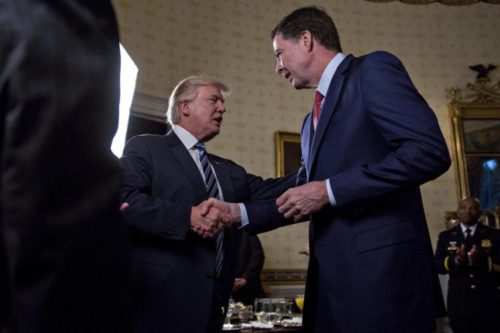
Don’t mess around with Jim.




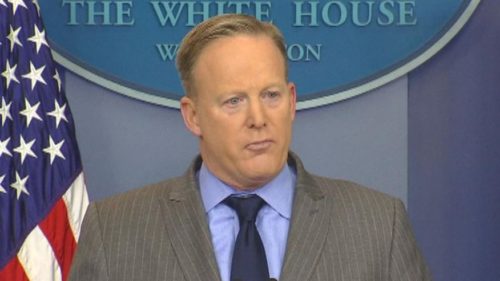

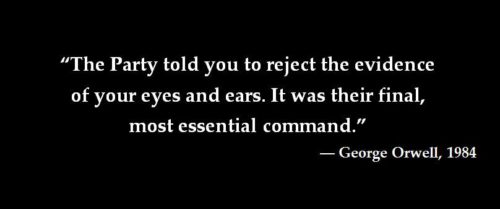
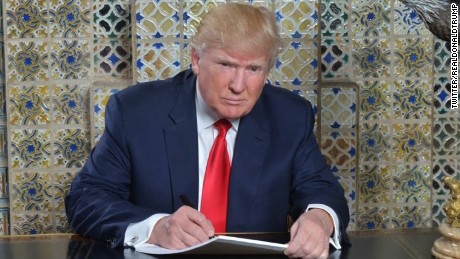
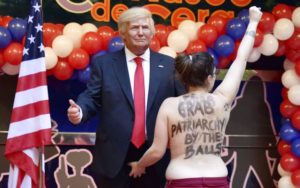 Stay vigilant.
Stay vigilant.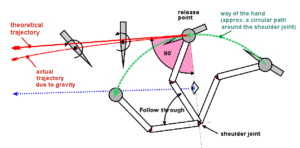 Customize tactics.
Customize tactics.